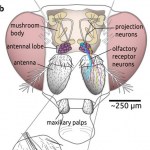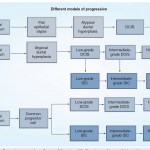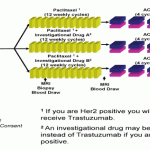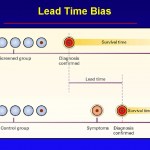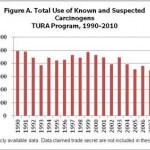breast cancer
As I write this, I am winging my way home from the 2014 meeting of the American Association for Cancer Research (AACR, Twitter hashtag #AACR14) in San Diego. (OK, I'm revising this to fit the format and, of course, the Insolence of this particular blog. Shockingly, I didn't have as much time to blog in San Diego as I had thought I would. Go figure.) Basically, the AACR meeting is one of the largest meetings of basic and translational cancer researchers in the world. I try to go every year, and pretty much have succeeded since around 1998 or 1999. As an "old-timer" who's attended at least a…
I just read a really neat study from researchers at Texas A&M University. While admittedly this is not comparative physiology, it was just too interesting not to share.
In a study published in the Journal of Nutritional Biochemistry, Dr. Luis Cisneros-Zevallos and colleagues found that administering peach extract to mice inhibited the metastasis (i.e. spread) of breast cancer to other organs, namely the lungs. They attribute this effect to the mix of phenolic compounds in the extract. The dose administered to the mice is equivalent to consuming 2-3 peaches for a human.
In prior work, Dr…
Researchers observed tiny voids forming in silicon used for solar panels; these voids provide physical evidence of the Staebler-Wronski effect, "which reduces the solar cell efficiency by up to 15 percent within the first 1000 hours."
Using an online avatar with a skin color other than your own makes you less racist in real life; playing a hero makes you less cruel, and playing a villain less benevolent.
Old mouse muscles exhibit "elevated levels of activity in a biological cascade called the p38 MAP kinase pathway" which prevents stem cells from dividing and repairing muscle damage. By…
The last couple of weeks, I've made allusions to the "Bat Signal" (or, as I called it, the "Cancer Signal," although that's a horrible name and I need to think of a better one). Basically, when Bat Cancer Signal goes up (hey, I like that one better, but do bats get cancer?), it means that a study or story has hit the press that demands my attention. It happened again just last week, when stories started hitting the press hot and heavy about a new study of mammography, stories with titles like Vast Study Casts Doubts on Value of Mammograms and Do Mammograms Save Lives? ‘Hardly,’ a New Study…
Higher insurance rates don’t mean people stop seeking care at publically funded health centers, found a recent study of family planning clinics in Massachusetts. The findings speak to serious concerns within public health circles that policy-makers may point to higher insurance rates as a justification to cut critical public health funding.
Published in the Jan. 24 issue of Morbidity and Mortality Weekly Report, the study examines trends among uninsured patients seeking care at Massachusetts health centers that receive Title X Family Planning Program funds. (The federal Title X program…
New research published in Science Reports by Strauch et al., shows that fruit flies can tell the difference between cancerous and healthy cells. The researchers recorded calcium patterns indicative of neuronal activity that was stimulated in response to various odors emitted by healthy and cancerous cells. Because cells with cancer differ metabolically from healthy cells, they emit different volatile compounds that can be detected by olfactory receptor neurons on the antennae of fruit flies. When exposed to breast cancer cells or healthy cells, the flies exhibited different patterns in…
These days, Dr. Oz seems to stand for everything I oppose in medicine: Fear mongering, quackery, making claims that he can't back up with science, and, of course, filthy lucre. On second thought, I'm not against filthy lucre per se. In fact, I wouldn't mind having some of it myself. However, I also want to keep my integrity, and if getting a piece of that filthy lucre involves compromising myself, my scientific credibility, and my overall credibility as much as Dr. Mehmet Oz has done over the last several years, I'll have to settle for my comfortable upper middle class existence. It's not so…
Researchers are studying tumors in the mammary glands of dogs to help understand breast cancer in humans with the goal of developing new treatments.
Follow On Twitter: @DrDoScienceBlog
Having just discussed yesterday the demonization of chemotherapy and how bad its side effects can be, I was thinking last night that it was time to move on, that I had gotten stuck in rut writing too many cancer-related posts in a row. Then, as so often happens, I came across something that so irritated me that I realized that I had to take one more dip into the same well. Before I do that, let's go back a couple of weeks to a man named Chris Wark. You remember Chris Wark, don't you? He's the man responsible for the Chris Beat Cancer website. In that website, Wark claims to have beaten stage…
First it was the balloon at the grocery store in the shape of a pink ribbon, and the front page of the newspaper printed on pink paper. Then it was the specially-designed package of pink lipstick, and the NFL players decked out with shocking pink shoes, socks, and sweat towel. It's "Breast Cancer Awareness Month," and it’s pink, pink everywhere.
Others have been writing this month about pink-washing. That’s the phrase describing firms and organizations which sell products and host events to make the public think they are contributing in a meaningful way to the breast-cancer cause. (This week’…
Blogging is a rather immediate endeavor. Over the last nine years (nearly), I've lost track of how many times I saw something that I wanted to blog about but but by the time I got around to it was no longer topical. Usually what happens is that my Dug the Dog tendencies take over, as I'm distracted by yet another squirrel, although sometimes there are just too many targets topics and too little time. Fortunately, however, sometimes the issue is resurrected, sometimes in a really dumb way, such that I have an excuse to correct my previous oversight. This is just such a time, and the manner in…
This being Breast Cancer Awareness Month and all, stories about breast cancer are frequently sent my way. This one is depressing and sad, mainly because it's the story of death from breast cancer. From what I can gather, it is the story of a death from quackery, a death that didn't have to occur. Even worse than that, it appears to be a death facilitated by the daughter of the deceased, a woman named Jessica Ainscough, who bills herself as the "Wellness Warrior." It's a horrifying story, the story of a woman who followed her daughter's lead and put her faith in the quackery known as the…
As I mentioned yesterday, one of the things I do on this blog that I consider to be a public service is to analyze cancer cure testimonials that are used to sell alternative medicine. Indeed, I did just that yesterday for a testimonial by someone Chris Wark, who will probably feature again one more time this week; that is, unless I have another Dug the Dog moment. In the meantime, this being Breast Cancer Awareness Month and all, a related article came to my attention. Although it doesn't have anything to do with alternative medicine, it does, like the story of Chris Wark, have everything to…
As I write this, I'm winging my way home from TAM, crammed uncomfortably—very uncomfortably—in a window seat in steerage—I mean, coach).
I had thought of simply recounting the adventures of the contingent of skeptics with whom I'm associated who did make it out to TAM to give talks at workshops and the main stage and to be on panels, but that seemed too easy. Also Orac is just too damned egotistical, and, besides, it's a four hour flight. Even so, I would be remiss if, before delving into the topic of today's post, I didn't praise Steve Novella, Harriet Hall, and Mark Crislip, for their…
Lymphedema is a complication of breast cancer surgery that all surgeons who do breast surgery detest. Patients, of course, detest it even more. The limb swelling that is the primary symptom of lymphedema comes about because surgery on the axillary lymph nodes (the lymph nodes under the arm) that is part and parcel of surgery for breast cancer can interrupt lymph vessels and cause backup of lymph fluid in the affected arm. This backup has consequences, including skin changes, a tendency towards infections, and, in extreme cases, elephantiasis (which is, fortunately, rarely seen these days as a…
After yesterday, I really hadn't planned on writing about Angelina Jolie and her decision to undergo bilateral mastectomies again, except perhaps as a more serious piece next week on my not-so-super-secret other blog where The Name of the Doctor is revealed on a weekly basis. As I mentioned yesterday, there are a number of issues about the decision that could use my professional attention, from the process, to the evidence, to the issue of how the surgery was handled. Oh, and if I do decide to do that I'm sure I won't be able to resist a mention of some of the quackery that oozed out from…
A key pillar of the Stanislaw Burzynski antineoplaston marketing machine, a component of the marketing strategy without which his clinic would not be able to attract nearly as many desperate cancer patients to Houston for either his antineoplaston therapy (now under a temporary shutdown by the FDA that, if science were to reign, will become permanent) or his "personalized gene-targeted cancer therapy," which Burzynski represents as a discovery of his that large NCI-designated comprehensive cancer centers like M.D. Anderson or Memorial Sloan-Kettering are only now starting to copy, is the…
One of the more depressing things about getting much more interested in the debate over how we should screen for common cancers, particularly breast and prostate cancer, is my increasing realization of just how little physicians themselves understand about the complexities involved in weighing the value of such tests. It's become increasingly apparent to me that most physicians believe that early detection is always good and that it always saves lives, having little or no conception of lead time or length bias. A couple of weeks ago, I saw another example of just this phenomenon in the form…
By Polly Hoppin, Dick Clapp, Molly Jacobs, Margaret Quinn and David Kriebel
We all know a woman who has been diagnosed with breast cancer, whether she’s our mother, sister, close friend or neighbor. It’s the most common invasive cancer in women in this country, and we need to get more serious about preventing it. Last month a respected group released a report on breast cancer prevention with a clear and urgent message: “identifying and mitigating the environmental causes of breast cancer is the key to reducing the number of new cases.” The report of the Interagency Breast Cancer and…
Third of five student guest posts by Dana Lowry
In 1911, Peyton Rous first discovered viruses can cause cancer. A chicken with a lump in her breast had been brought to Rous by a farmer. Rous prepared an extract that eliminated bacteria and tumor cells and injected this extract into other chickens—tumors grew. Rous suggested “a minute parasitic organism” was causing the tumor growth, which is now known to be a virus. However, Rous’ discovery remained very controversial, and it wasn’t until 1966 that he was awarded a Nobel Prize for his discovery. Since…


